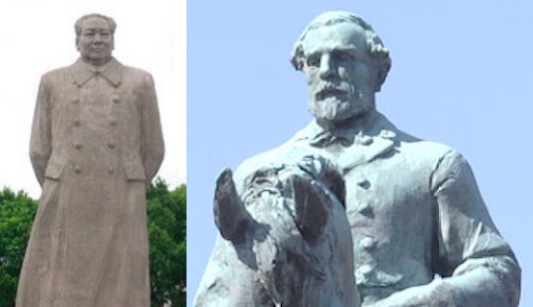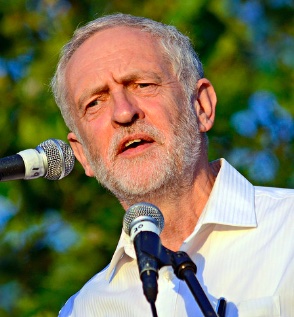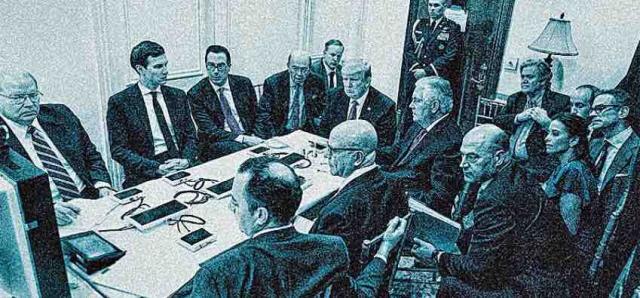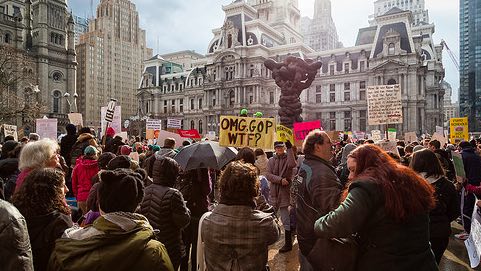President Trump’s pandering executive order reversing an Obama decision to scale back the dumping of surplus military equipment on the nation’s already over-armed police departments includes word that his new “toys (arms)-for-cops” benefit program will include Army and Marine surplus bayonets.
Let’s ponder that for a moment.
The Army gave up bayonets for combat use after the Korean War (the last recorded US bayonet charge was in 1951 in that war). Now, while the Marines still train in bayonet use in boot camp in a bow to tradition, the reality is that nobody actually uses them in combat.
So you have to ask: If the military doesn’t think that bayonets are needed or useful in actual combat, why would police in the US need them?”
It’s a good question and gets to the larger question of why American cops need any of the gear that they’re being offered — once again — by the US military: everything from RPGs to MRAP “tanks” so heavy that if called out for a SWAT raid, a route has to first be carefully plotted and followed that doesn’t cross over any of this country’s worn-out and and crumbling bridges and culverts (an MRAP weighs 14-18 tons, while local street viaducts in many communities frequently have tonnage limits in the single digits).
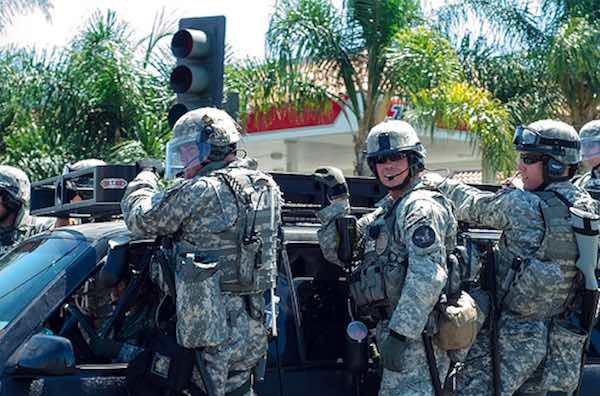 Cops or soldiers? In today's America it's hard to know.
Cops or soldiers? In today's America it's hard to know.
Before he retired, I had a conversation with the chief of police of my community of Upper Dublin, a quiet middle-class suburb of Philadelphia, about militarized policing. A thoughtful veteran of the Vietnam War himself, he disabused me of an automatic and commonly shared assumption I had made that local police SWAT teams were probably populated by combat veterans looking for more adrenalin-pumping action. Actually, he told me, combat vets who go into police work — and there are many who do, thanks to the extra points awarded to veterans by most communities in their hiring — don’t want to be playing soldier when they become police officers. “They’ve had enough of war and killing,” he told me. “It’s the ones who have never been in the military who volunteer for SWAT teams.” He Described such SWAT volunteers as “wannabe soldiers.”
Maybe if police and sheriff’s departments get old Korean War-era bayonets from the Pentagon to put on their semi-automatic rifles, they’ll try launching bayonet charges next time they bust into a house to deliver a bench warrant for a bald tire or missed family court appearance or to look for pot plants, instead of just walking up to the front door in the early morning and bashing it in with a battering ram, as my son witnessed the Savannah Police SWAT unit do trying to arrest a pot dealer who lived next door to him and his schoolmates (the suspect wasn’t home, but his little kids were).
Next we’ll be reading about police stabbings of innocent civilians, instead of their being shot.

